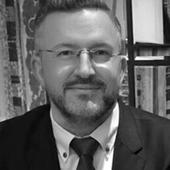Bringing Light to the Darkness
Daily, we are inundated by a numbing and dizzying array of outrageous horrors and painful tragedies occurring both here at home and abroad. There are reports of: families torn apart by war, domestic strife, or callous authorities; innocent lives taken by cruel acts of terror or brutally insensitive governmental action; and the freedoms of individuals and groups denied by repressive regimes or discriminatory policies.
With so much accumulated pain and suffering, it often becomes difficult to sustain the confidence that good will triumph over evil and the hope in a better tomorrow. At the times when I'm feeling overwhelmed by what appears to be the mountains of evil that confront our humanity, I turn to a simple insight I gleaned from my favorite theologian/philosopher, Teilhard de Chardin.
Teilhard would suggest it's not that there's more evil in today's world, it's that we are more aware of the evil that exists. And it is precisely because we are more conscious, that we are more capable of responding to the suffering and acting to ameliorate the conditions that have produced it.
A century ago, unspeakable horrors took place on every continent that were known only to the victims and the perpetrators. Not so today. As a result of advances in communications – from the telegraph and radio to satellite television and the internet – the pain and loss of global tragedies are brought home to us in real time.
Because of this expanding consciousness, the post-World War II era has witnessed the rise of visionary leaders and the birth of countless organizations dedicated to alleviating suffering and elevating the causes of peace, human rights, and tolerance among peoples. Individually and collectively, they have championed the rights of peoples in far-flung corners of the world, some of which had been previously unknown to those who became their advocates. These same leaders and groups have also fought for civil rights and for economic, social, political, and environmental justice in their own countries.
Seeing our ever-expanding response to evil gives us hope and inspires us to do more. The bottom line is that despite all that is wrong in today's world, humanity is, in fact, in a better place today than ever before in history. A few examples:
We read commentaries suggesting that the instability, terror, and wars raging across the Arab World are unprecedented, with Western analysts suggesting that it's all the result of the endemic brutality or dysfunctionality of Arab culture or society. In response, I ask these "scholars" to recall that in a short 30-year period of European history, nations on that continent fought two wars that produced the horrific slaughter of more than 50,000,000 souls. Added to this were the tens of millions of Arabs, Africans, and Asians who, during that same time frame, were victims of Europe's oppressive and violent colonial rule.
Most of those tens of millions died without provoking any questioning – then or now – of what was wrong with European society or Christian culture. While innocent Armenians, Ukrainians, Indians, and Algerians cruelly lost their lives, their tragedies were not recognized until decades later.
Today, on the other hand, we organize protests in defense of the Rohingya Muslims, the people of Darfur or East Timor or Gaza, or the Yazidis and Christians in Iraq. We have international NGOs waging campaigns for justice for oppressed peoples on the other side of the world, mobilizing protests on behalf of victims of torture, or raising billions of dollars to house those displaced by war or to rescue victims of natural disasters or famine.
Looking to my own country, just a little over five decades ago, millions of African Americans lived under a repressive discriminatory regime that denied them basic human rights and justice. And during World War II, over one hundred thousand Japanese American citizens lost their businesses, property, and their freedom as they were placed in concentration camps for the duration of the war.
Today, African Americans, although still plagued by economic and social inequities and still victims of official violence at the hands of authorities, have made significant advances because powerful movements organized by their own visionary leaders and supported by other people of conscience, rose up to demand justice and press for change. And while many feared that in the post-9/11 period that Arab and Muslims in America might suffer the same fate as the Japanese Americans, a coalition of dozens of civil rights, religious, and ethnic communities – led by Japanese Americans – mobilized to defend them. The same coalition came together, almost spontaneously, and packed US airports to welcome Muslims to America after President Trump announced his now infamous "Muslim Ban."
The lessons are clear. The world has changed – for the better. Evil still exists, but awareness of evil and the will and capacity to resist it now enables us to a difference.
It is in this context that I note that my organization, the Arab American Institute (AAI), will, this week, host our annual Khalil Gibran "Spirit of Humanity' Awards Dinner. We use this event to honor those individuals and groups who have helped increase our collective awareness of the world's suffering and have, in ways big and small, worked to alleviate that pain.
This year's honorees include: the BBC's Lyse Doucet, whose reporting has brought home the personal stories of those whose lives have been devastated by war; Mayor Gus Newport, who for 50 years has been in the forefront of efforts to fight for racial, economic, political, and environmental justice; RAICES, an organization devoted to supporting families torn apart by the cruel family separation policy imposed by immigration authorities; Miriam Zayed, a Chicago community activist, whose life taught us the simple truth that those who are true leaders are those who are devoted to the service of others; and Emel Mathlouthi, the Tunisian singer, whose marvelous talent has given voice to the cry for freedom and the pain of refugees.
Those whom we honor have helped to bring light into the darkness and give us not just the hope of a better tomorrow but the confidence that we are on the path to making that hope real.
















